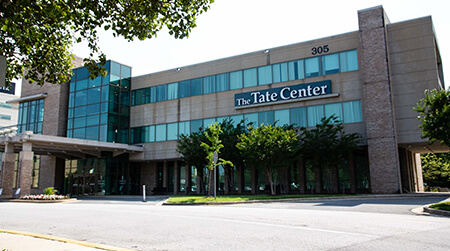


Liver cancer is one of the fastest-growing cancers in the US. It begins when tumor cells grow from liver cells and divide uncontrollably. This can impair the function of your liver and several other surrounding organs.
The Chesapeake Oncology Hematology Associates will create a comprehensive treatment plan that offers the most advanced treatments available. It provides you with the best outcomes possible, ranging from complete or partial surgical removal to different personalized treatment options for all types of liver cancer.

There are different types of liver cancer that we treat.
We have various liver cancer treatments available. They include:
Cancer surgery is a surgical treatment that removes a tumor and surrounding tissues to prevent the cancer from growing further.
Radiation therapy is the regulated use of radiation to treat cancer. At COHA, our radiation oncologists have access to the latest types of radiation machinery and treatment procedures.
Chemotherapy is a potent medication therapy that kills tumors inside your body. These drugs are generally combined with other treatments like surgery, hormone therapy, or radiation. At COHA, our providers will recommend the right chemotherapy plans for you.
Immunotherapy is a type of advanced cancer therapy that strengthens your immune system and other defense systems to battle cancer at the cellular level. Our immunotherapy experts have got years of experience in successfully treating cancer patients.

8:00 AM ~ 4:30 PM (M-F)

8:00 AM ~ 4:30 PM (M,T,T,F)
Wednesday -
Closed

8:00 AM ~ 4:30 PM (M-F)

8:00 AM ~ 4:30 PM(M-F)
Signs and symptoms of liver cancer may include:
Cancerous tumors that have spread (metastasized) to the liver from another section of the body are known as metastatic liver cancer.
Chemotherapy is not a cure for liver cancer in the majority of instances, as regular chemotherapy is ineffective in treating liver cancer. However, doctors may occasionally propose an alternative type of chemotherapy known as hepatic artery infusion.
Other ways to prevent liver cancer are:
Upon receiving your diagnosis, we recommend discussing your treatment options with one of our providers immediately. Delayed decisions on treatments can result in the cancer progressing quickly.
If left untreated, liver cancer can spread to any body part. When liver cancer cells divide and proliferate, they migrate to veins in the liver or surrounding lymph nodes before migrating to distant organs like the bones or lungs.
The survival rate for people with liver cancer varies based on the severity of their diagnosis and the stage of their malignancy. According to the American Cancer Society, the 5-year survival rate for liver cancer is around 30%.
The rate at which liver cancer spreads is primarily determined by its type and the discovered stage. Some uncommon cancers begin in the cells that line the blood veins of the liver. These varieties are more likely to spread more quickly than others.